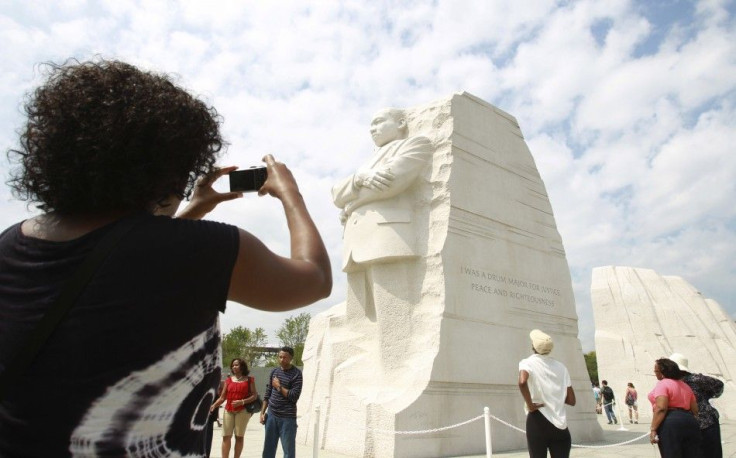Black History Month: Great Ways to Celebrate African-American Culture This February

February is Black History Month, and every American should take some time to celebrate African-American history and culture. From civil rights to business, music, literature and medicine, black Americans have played a major part in defining what makes America great.
Here are several ways you and your family can celebrate African-American culture as part of Black History Month:
Visit the new Martin Luther King, Jr. National Memorial on the National Mall: White America has had massive monuments on the National Mall in Washington, D.C., for many years, but this is the first year in American history when folks can visit a memorial dedicated to a black American. And Martin Luther King, Jr., is not just any man: He is the most-beloved figure of the Civil Rights era, he is one of the greatest champions of racial equality in United States history, and he continues to be one of the greatest inspirations to African-Americans across the nation. Opened to the public in August, every person interested in celebrating African-American culture this Black History Month should try to make a trip to the Martin Luther King, Jr. National Memorial, as it's never before been an option. And while there, maybe stop by the White House and see if you can catch a glimpse of President Barack Obama, the nation's first black president, and another black leader who has made his indelible mark on U.S. history.
Listen to some blues, soul, R&B, hip-hop and jazz: African-Americans were instrumental in many of the most important advances in 20th century music history, and there's no better way to honor the great black musicians than by listening to their songs. From Aretha Franklin and Louis Armstrong to Alicia Keys and Stevie Wonder, many of the most talented and soulful singers of the 1900s were African-American, as were most of rap's leading lights, from Big Daddy Kane and Nas to 50 Cent and T.I. So, in order to ring in Black History Month in the best way we know how, brew a nice cup of tea, play John Coltrane's transcendent A Love Supreme on your stereo, and reflect on the contributions of one of the world's most influential music cultures.
Read The Autobiography of Malcolm X: This mind-expanding book examines the redemptive tale of Malcolm X's life, as told to Alex Haley, of Roots fame. Tracing Brother Malcolm's evolution from robbing people and doing drugs on the streets of inner-city Boston to his time in jail, his youth as described in this tome is a classic tale of turning one's life around through the power of knowledge and faith. It's the tale of a spiritual journey that leads him through his various public personae, from a follower of the Nation of Islam to a black-power militant, and from his choice to leave the church and go to Mecca, where he learned the power of peace before being shot down several decades too soon. The Autobiography of Malcolm X is like a how-to book detailing what makes the African-American experience such a unique one, and one that deserves to be celebrated with great written works like this essential read.
Cook a dinner of traditional African-American foods: Celebrating African-American culture during Black History Month sounds like a chore to some people, and this one literally is, though the reward far outweighs the time it will take you to cook a wonderful African-American-inspired meal. A wide range of foods became popular in the south while African-Americans were still suffering under slavery. Many of these foods, from cornbread to greens to black-eyed-peas, became staples of black life in the South because the ingredients to make them were inexpensive and readily available in many African-American households during the hardscrabble times that followed the end of slavery. But that doesn't make them any less tasty, so take a break from the diet for one night and cook up a hearty, traditional, African-American-inspired meal.
© Copyright IBTimes 2025. All rights reserved.





















